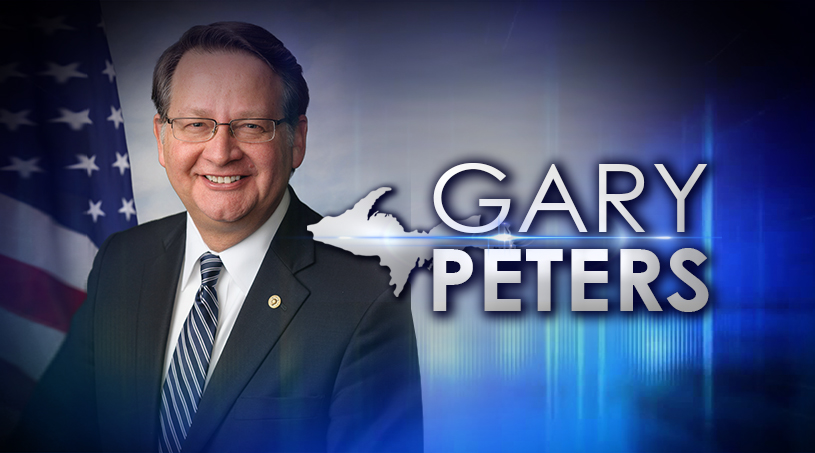Sen. Peters addresses Senate about Line 5

WASHINGTON, D.C. — U.S. Senator Gary Peters took the Senate floor to talk about the safety of Line 5 in the Straits of Mackinac. The address follows recent reports that Enbridge did not disclose problems with the protective coating of the pipeline for more than three years.
Both Peters and Michigan Senator Debbie Stabenow sent letters to the Pipeline and Hazardous Materials Safety Administration requesting a federal investigation into the company’s compliance with reporting and safety requirements. The pair also sent a letter to Enbridge’s CEO requesting additional information about the company’s reporting practices.
You can watch the video of the address here, or read it below.
“M. President, Next to our people, The Great Lakes are – unquestionably – Michigan’s greatest resource.
They are more than an economic engine. They are more than a source of drinking water for 40 million people. They are more than a destination for tourists, boaters, and anglers from across the globe. While the Great Lakes certainly are all of those things – in Michigan – they are a way of life. They are home.
You can’t sit on the edge of one of our massive, inland seas without feeling a sense of awe and gratitude. Just look at the Straits of Mackinac, a five-mile stretch of water where Lake Michigan meets Lake Huron, and Michigan’s Upper and Lower Peninsulas are connected by the Mackinac Bridge.
Unfortunately, today I can’t look out at these Straits without a feeling of grave concern. The Straits of Mackinac are home to unbelievably powerful currents, water – at times – flows through at a rate greater than 10 Niagara Falls.
These currents are also unpredictable, they can flow in any direction and change not by the season or even by the day, but by the hour. The Straits are also home to twin underwater oil pipelines operated by Enbridge – known as Line 5 – that are now 64 years old and getting older by the day.
A recent study by the University of Michigan found that the Straits of Mackinac are the absolute worst possible place for an oil spill in the entire Great Lakes System. Without question, there is no way this pipeline would be built today. But it’s there, so we need the toughest protections and strictest accountability possible.
To put these in place, I worked to pass bipartisan legislation to designate the Great Lakes as an Unusually Sensitive Area which requires the highest possible operating standards under federal law. Rigorous federal oversight is critical, but pipeline owners and operators must do their part by being transparent and forthcoming.
While Enbridge assured us – repeatedly – that Line 5 is, quote – “as good as new” – we found out in August that there are Band-Aid sized gaps where protective coatings had worn completely away and exposed the bare metal underneath to the harsh underwater environment in the Straits.
Last month, we learned of six additional locations with damage to the protective coatings, leaving areas as big as one square foot of exposed bare metal at each location.
Then, on October 27, 2017 – only two weeks ago – Enbridge disclosed that their Pipeline Integrity Department knew of the damage they had caused to the pipeline while conducting maintenance in 2014 – three years ago.
I share the concerns expressed by thousands of Michiganders who dread the worst-case oil spill scenario, now I share their frustration and anger over being misled. It is unacceptable that damage to a pipeline running through the Great Lakes could go unreported for three weeks, let alone three years.
Simply put, Enbridge does not deserve our trust, but we deserve answers. This is why – earlier this week – I called on the Pipeline and Hazardous Material Safety Administration to exercise their oversight role and conduct a thorough investigation, examine any potential safety or reporting violations, and assure all Michiganders of the safety and integrity of Line 5 if possible.
I also joined Senator Stabenow in demanding answers from Enbridge’s CEO to three critical questions: One, what are you doing to fix your broken reporting procedures? Two, is there any other unreported damage to Line 5? Three, how can we be certain that regulators are being fully informed?
We need these answers, and we must get them. I will never stop fighting to hold pipeline operators accountable and to keep our Great Lakes safe and clean.
The Great Lakes are home and I will do everything I can to protect them for generations to come.”
